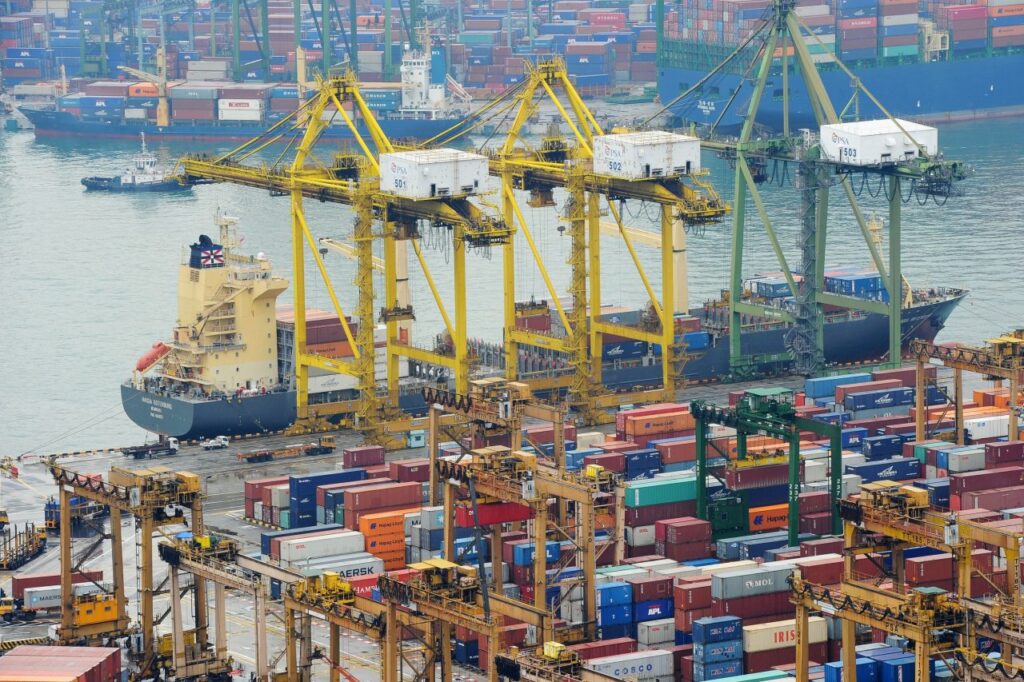
Some African States have shown serious interest through their submissions. For example, Sierra Leone’s submission to the ITLOS reflects Buhari’s CoP 26 speech. It recalls the paradox of Africa’s low contribution to Greenhouse Gases (GHG) emissions and its high impact on the effects of climate change and calls for ‘an equitable way forward, firmly rooted in the Convention (UNCLOS) for sharing the burden among States’.
A part of its submission explains West Africa’s dependence on agriculture and fishing and its complex geography which exposes it to erosion and drought. Djibouti’s submission highlights an international obligation for States to cooperate in achieving the ‘highest possible mitigation efforts’ for environmental harm and also presents its case as a least developed country requiring even more deliberate collaborative efforts to meet its GHG reduction targets.
Curiously, Nigeria seems uninterested and not involved. Everyone on the street would ask if matters concerning the environment are worth our national investment. The immediate response is: why not? Like it or not, the impact of climate change is felt around us: coastal flooding in Nigeria has become a concerning mid-year routine problem in the last decade. Remember the 2022 floods that had devastating effects across about six States, displacing millions of people and destroying properties. A significant proportion of the floods affected agriculturally rich States and we are not a country known to recover as quickly as we fall. The effect on the economy was enormous and we presently still suffer our losses from that situation. This flooding crisis continued in 2023 and is expected to continue until properly mitigated through the construction of drainages and other preventative measures.
On the other end of the spectrum, the incidence of drought is increasing in Nigeria. Declining rainfall in some parts of Northern Nigeria and dry belt areas accounts for an average loss of about 350,000 hectares of land annually according to the Federal Ministry of Environment.
For context, this is about the size of Mauritius. This is not to be taken lightly. Much of Nigeria’s hope for agricultural productivity depends on the vast arable lands of the North, yet crop failure, migration of farmers and their livestock, biodiversity loss and other environmental effects slow down production and result in huge economic losses for the country. The National Emergency and Management Agency (NEMA) provides relief materials to displaced people in times of severe environmental hardship, but we cannot out-relief the negative recurring effects of climate change. It was also in February 2024 that Nigerians experienced up to 40°C heatwave, the highest so far in some parts of West Africa.
Yet we are not alone: our North African counterpart, Tunisia has been grappling with years of severe drought leading to years of food shortages and economic stagnation. As a result, it declared a state of emergency on the use of water, which involved imposing water restrictions in farming and cleaning of public areas.
In Southern Africa, Zambia has also recently lost an estimated one million hectares of planted crops due to drought which has been declared a national disaster. As both economies take the hit of this humanitarian disaster of severe magnitude, their governments now explore sustainable solutions to tackle this potentially recurring climate hazard. Some of these alternative options include desalination and purification of wastewater taking Spain’s example, to meet their hydration needs.
Nigeria is advised to take its flooding and drought issue seriously, cooperate with neighbours of similar hardship and participate in the global movement for climate equity and justice.
Next steps
Former President Muhammadu Buhari’s speech at CoP 26 emphasising the minimal contribution of developing countries to GHG was applauded for addressing the elephant in the room. It was a call to action founded upon equity and environmental justice. Yet, it remains what it is – a call to action, a springboard. Now is the time for Nigeria, Africa and the developing world to robustly participate in the process that delivers environmental equity.
The key questions before the ICJ and the ITLOS focus on what State obligations are to ensure the protection of the climate system, to prevent, reduce and control pollution in relation to the deleterious effects that result or are likely to result from climate change and what the legal consequences should be for significant harm to the environment.
In all of this, Nigeria should not be missing.
As a country that experiences the challenge of flooding and drought in agriculturally important regions, we have a case to submit and a perspective to share. A case that should compel the international community to choose equity in determining State obligations and more importantly, to ensure firm consequences for any breach resulting in negative environmental impact on our lands.
Silence or indifference is not an option.
Concluded.
Nwarueze is a Lawyer, Rhodes Scholar and international law researcher at University of Oxford. She advises on foreign policy and international law and can be reached via: elizabeth.nwarueze@law.ox.ac.uk.












